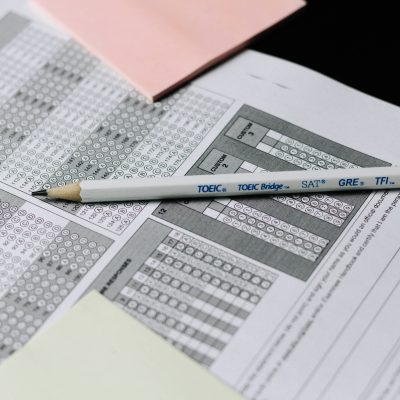Being Asian in the classroom
Our first-hour health class in Room 1122 was in its typical drowsy chatter. Fitting to our slicing Michigan winter, everyone had their stuffy, down parkas tied to their chairs, flung to the ground, or in most cases, on top of the desks as pillows to aid in a few more minutes of much-needed sleep. That happens when school starts before 8 a.m., the sun has hardly risen, and it’s January, where our vacations to foreign countries or lazy days of blissful free time are fading into faraway realities.
Room 1122 is a classroom hidden in the depths of our school, within the lowest level tucked in between the basketball courts and pools. As our teacher told us on the first day of the semester, we would have to switch to Verizon if we wanted any connection in that room. So, stuck with AT&T and T-Mobile, my friends and I sat at a table together waiting for school to start. The bright fluorescent lights weren’t enough to force us out of our morning slowness so we carried on an unembellished conversation. I was probably grumbling about a grade (a 96% rather than a full score), or something just as trivial, when our health teacher entered the classroom, overhearing and promptly mocking “Okay, Ms. Princeton.”
I’ll be the first to admit the “Ms. Princeton” comment was mostly innocuous. Rather than sparking offense or indignancy, it made me consider something larger. As it was, he was one of the teachers (of many) I’d had who held subtle, nuanced biases against Asian students like me. Well, not exactly against Asian students. But Asian students who try hard in school and care about grades — which is, admittedly, most. There are many non-Asian students like this, but those students are “exceptional” or “personable” or “outstanding,” while us Asian students, we’re not those “bright individuals” or “full of potential.” We’re just another Asian who is good at school or smart or maybe both — it doesn’t really matter.
The city where I lived at the time (and for most of my life) lends itself to many titles, and one would definitely be diverse. That year, my high school student body had just become more than 50% nonwhite. And a large fraction of that nonwhite percentage included Asian students (around 25% of the whole student body, with the other 25% being Black). So the prejudice against Asians in this place didn’t root from inexperienced ignorance, but firmly held stereotypes that only seemed to reinforce themselves. The Asian community there flourishes, and many feel comfortably at home: We speak mother tongues, eat ethnic foods, and mostly get away with not conforming to Western norms. And for us kids who had been born American to Asian-immigrant parents, we also fit the bill for Asian stereotypes: We worked hard in school, maintained good grades, played instruments, and more. To those looking in from the outside, it might seem like some of us were building a college application for the first 18 years of our lives. That’s an entirely different issue, but there is more to us than that outsider perspective.
The stereotype holds a strong, widespread reign, painting Asians as machine-like, one-dimensional characters who only care about doing well in school. In this way, it warps and twists, until the narrative arises that Asians only care about doing well in school for selfish reasons. Go to a good school, get a good job, make lots of money.. To an extent, this is even true. Many of us are honoring the sacrifice of our parents’ immigrant experiences, made for the betterment of our education and well-being. But somehow this translates to some sort of rule of thumb that says Asians don’t care about real learning because their desires are merely self-serving and superficial. It’s weird, though, because no one ever shamed a white person for chasing the American Dream. That’s just what they’re supposed to do.
Even from my small share of experiences of an overflowing platter, I can testify to many teachers insidiously treating Asian students differently. They avoid calling on us if another kid (non-Asian) can raise their hand. They treat us with unenthused, lukewarm attitudes in comparison to our peers. When it’s bad, it can feel like our very student presence is already an unfortunate, plastic pollutant they have to work around without acknowledging they’re just being racist. As teachers, they fail to appreciate good students since a stereotype is already guiding their behavior. Our achievements are underwhelming and unimportant. Our excellence is artificial, unnoteworthy, and common, while our counterparts are individuals whose excellence is worthy of acknowledgement. In these ways, they impede the education of young people who will be the future whether or not they like it. They suppress a group of students who are as ripe for learning and intellectual stimulation as their peers. In a way, they’ve begun silencing a racial group from childhood, one that is already known for its complacency in Western society. If they want to truly build the future for the better, this racist, discriminatory behavior will never cut it.
Many Asian-Americans do care about school and succeeding in life: As almost all racial groups do. Assuming an Asian student cares about school only for selfish, dishonest reasons is racist. Assuming an Asian student’s intelligence or achievements are not equal to their counterparts’ is racist. Teachers must do better than act in such biased, virulent ways, like whittling Asian students down to “Ms. Princetons” or “Mr. Harvards” if they are going to shape the next generation into capable, well-informed citizens of the future.










